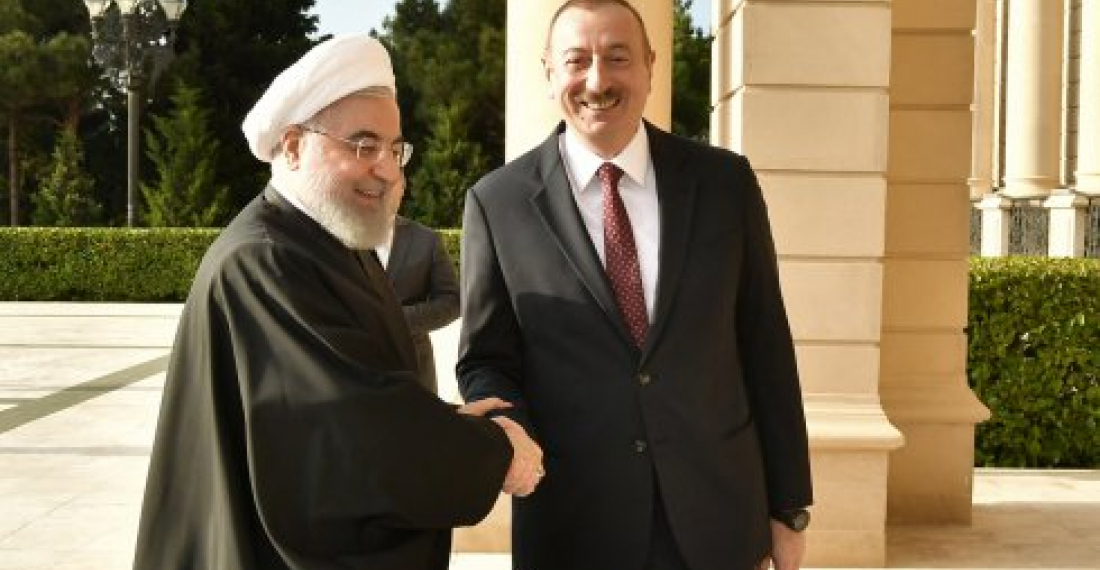- Armenia-Azerbaijan Strategic Expert Platform: Members emphasise the importance of the present moment for the South Caucasus and call for the momentum to be used for the long-term peace and prosperity of the region
- Thursday Interview: Dr. Anar Valiyev
- Food insecurity in Somalia has nearly doubled in the past year
- Türkiye evaluating potential measures in case of a US-Iran conflict
- European Parliament reaffirms support for Ukraine and EU Path
- EU moves ahead with Ukraine loan preparations despite Hungarian block

Azerbaijani president Ilham Aliyev on Thursday (24 October) received at the presidential palace in Baku the president of the Islamic republic of iran, Hasan Rouhani.
Rouhani is in Baku at the head of a large delegation to participate in the summit of the heads of State and Government of the Non Aligned Movement. Azerbaijan this week takes over the chairmanship of the Movement for the next three years.
Exchanging greetings before their talks the two presidents stressed that Iran-Azerbaijan relations were at their highest level and co-operation between the two countries was progressing in all fields. President Aliyev recalled that he had met his Iranian counterpart ten times in the last few years and said that the meetings had set the tone for the excellent relations now existing between the two countries.
source: commonspace.eu
photo: President Aliyev of Azerbaijan welcoming president Rouhani of Iran at the presidential palace in Baku on 24 October 2019 (picture courtesy of the press service of the president of Azerbaijan)








